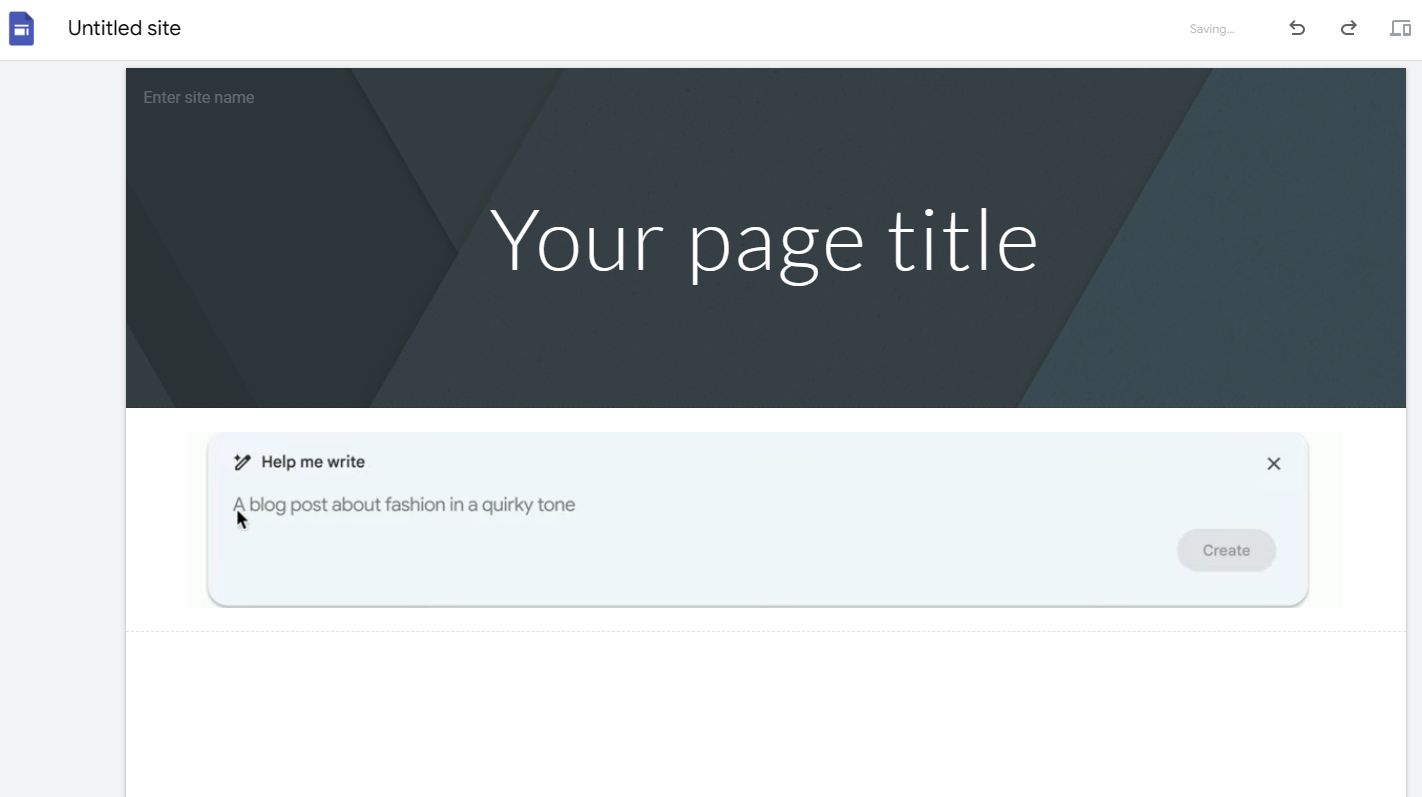This one, innocent-looking Google I/O screenshot gives a terrifying glimpse into the future of SEO and online publishing
"Help me write a blog post about fashion in a quirky tone"; is this the start of a new (bloody) revolution?
Sign up for breaking news, reviews, opinion, top tech deals, and more.
You are now subscribed
Your newsletter sign-up was successful
Around the 30th minute of this week's Google I/O 23 keynote, Aparna Pappu, VP and GM for Google Workspace, casually launched a Google Docs document as part of her presentation on how AI as a collaborator, is coming to Docs, Slides and Sheets (love the fact that it called Duet, a bit more poetic than Microsoft’s Copilot).
The first is, ironically, one for the job description (one of the most popular use cases, she quipped). For a split second when the help me write box appears, it displays a text that reads “a blog post about fashion in a quirky tone”. Blink and you might miss it.
As a content producer, that was the highlight of Google I/O 23 for me, the realization that Google is now comfortable enough with AI-generated content that it is actively encouraging the production of text within its own online services with a potential audience of more than two billion users. (Where will it stop? Will it come to YouTube one day as a “help me produce” prompt? Who knows).
While not (yet) one of the best website builders, Google Sites may sooner rather than later inherit the "help me write" feature. Others like Wix and Hostinger Website Builder have already included it in their features but Google’s unique position as content producer and SERP gatekeeper makes it all the more worrying for publishers worldwide.

Search engine optimization: The end?
Google’s search generative experience, where answers are produced by Google’s AI and inserted at the very top of the Search Engine Results Page, is certainly what will get the SEO community’s attention because it, yet again, pushes organic results down the page and this will have a long, lasting impact on publishers of all sizes.
I’d call it the “footnotization” of SERPs, as it relegates content producers to what could essentially turn into footnotes at the bottom of the page (similar to what we see in Wikipedia pages). Maybe it was all planned and ChatGPT was the perfect excuse for Google to roll it out once and for all; we shall never know.
Back to content produced by AI, what now looks like a stamp of approval from Google, means that in a few months, there could be a surge in machine-produced content, legitimate or not, content that is not only cheaper to produce but also not easily distinguishable from content produced by humans.
Sign up to the TechRadar Pro newsletter to get all the top news, opinion, features and guidance your business needs to succeed!
Lowering the cost of production to essentially a fraction of a dollar and eliminating the complexity of producing content (regardless of the topic or length) will profoundly alter the dynamics in online publishing.
Unless of course, Google excludes content produced by its own AI engine but I wouldn’t count on that. This may encourage publishers of any size to adopt content produced by AI at scale which in turn will push SEO of any ilk to put scalability and automation at the core of their workflows, with the best SEO tools available.
But the more Google pushes the traditional organic content further down the page, the less valuable these positions become, which in turn could impact revenue and make SEO obsolete (why have SEO if all you’d be vying for are footnote positions). We cannot, of course, exclude Google’s ability to curate, condense, concatenate and rehash existing content to produce Wikipedia-like meta-content.
And that’s one last step before what I consider to be Google’s ultimate goal for continued, long term growth, the ability to insert affiliate links in AI generated content at the top of the SERP page. Performance marketing is worth hundreds of billions of dollars annually and AI might just be what Google needs to grab a bigger slice of that lucrative market.

Désiré has been musing and writing about technology during a career spanning four decades. He dabbled in website builders and web hosting when DHTML and frames were in vogue and started narrating about the impact of technology on society just before the start of the Y2K hysteria at the turn of the last millennium.
